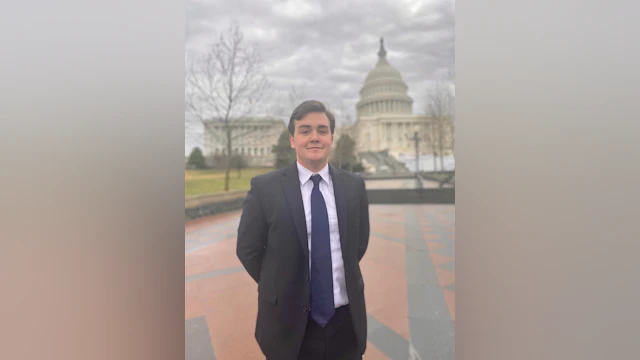Feb. 14, 2020 - In December 2019, the Federal Communications Commission (FCC) voted to designate a three-digit phone number, 9-8-8, for individuals in suicidal crisis to seek help. Changing the National Suicide Prevention Lifeline’s current hotline number (1-800-273-8255) into a much more accessible, easy-to-remember dialing code is not a complicated notion, but this historic policy has been decades in the making. Through its network of volunteer Field Advocates, the American Foundation for Suicide Prevention has been voicing its support for this policy.
Since the very first suicide prevention center was founded in Los Angeles over 60 years ago, crisis call centers across the country have responded to millions of individuals in distress. These call centers are a lifeline for those seeking help and guidance in a moment of crisis. In many communities, crisis call centers are the most immediately available resource a person can engage. But each call center has its own hotline number and provides its own designated services. Our disjointed hotlines left gaps in coverage and couldn’t provide the collective approach needed to respond to the mental health needs of the country. Over the years, the need to establish a uniform, national hotline system became evident, and in 2005 the National Suicide Prevention Lifeline was launched to connect this disparate network of call centers underneath one uniform number and one national system.
Today, the National Suicide Prevention Lifeline is our national mental health safety net, answering millions of calls every year through nearly 170 crisis call centers and national backup call centers. The Lifeline’s evolution over the past 15 years have made it an integral part of our country’s mental health system. However, the ten-digit Lifeline number can be cumbersome and difficult to remember, especially in a moment of crisis. Suicide prevention advocates called upon our law makers to designate a three-digit phone number for our national hotline, and in 2017 the National Suicide Hotline Improvement Act received overwhelming support from Congress and was passed into law. This Act laid the groundwork for the federal government to begin the three-digit number process, and was a major legislative victory for suicide prevention advocates and the country as a whole.
Now, Congress and the FCC are working to make 988 a reality. Over half a century of work and advocacy, on the part of AFSP volunteer Field Advocates and others, has led to this extraordinary recognition: that seeking help is normal and preventing suicide is a national priority. What else could this progress lead to? A greater public acceptance of mental health care. Easier access to more robust services. Crisis call centers providing the best quality services and receiving the funding to do so. Perhaps 988 will be the threshold to a broader crisis response service, like 911. 988 could connect individuals to coordinated resources and serve as an outlet for treatment, keeping people out of jails and saving them from unnecessary emergency room visits, something which happens far too often today.
There’s still more work that needs to be done to implement this new three-digit number. We must ensure that this future system is well-resourced, nationally accessible, and as effective as possible. But the future is closer than it’s ever been before. For future generations, it will soon be hard to imagine there was ever a time without 988, and having mental health and suicide prevention services just a quick dial away.
